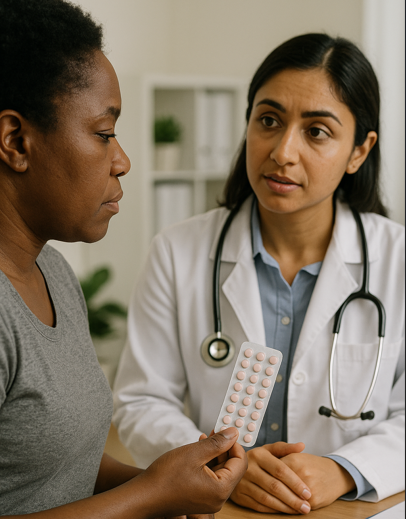

A new report has highlighted several factors that prevent women from receiving contraceptive methods after post abortion care.
The African Population and Health Research Center (APHRC) report, released on Friday, May 2, shows that approximately two-thirds of women did not receive contraception following their treatment.
Among those, 25.6 per cent of the women did not want to use a method because they wanted to get pregnant again soon, while 41.8 per cent were opposed to contraceptive methods.
This was due to the fear of side effects, partner opposition, personal opposition, preference for traditional methods or abstinence.
The study was conducted jointly with the Guttmacher Institute and the Ministry of Health between April 2023 and May 2024 through three study components.
Further, some 11.9 per cent of the women were interested in using a method but needed more time to either consult with their partner, decide on which method to use, or wait until their body recovered from the pregnancy loss.
A similar proportion of patients did not leave with a method due to issues with service availability and quality.
According to the report, 12.7 per cent did not receive counselling and 3.4 per cent reported method stock-outs or staffing shortages, to mean they were unable to access their preferred method.
The report stated that there were an estimated 2,850,346 pregnancies in Kenya in 2023, of which 1,435,988 were unintended and 792,694 ending in induced abortions.
The study aimed to estimate the incidence of induced abortions, the severity of post-abortion complications, assess health facility capacity to provide PAC and assess the lived experiences of women who have had abortions.
The report also stated that there is a need to strengthen the capacity of low-level health facilities, train midlevel providers, and equip health facilities with the appropriate post-abortion care supplies and commodities.
According to the World Health Organisation, post-abortion care (PAC) is a comprehensive approach that addresses the needs of women who have experienced an abortion, including medical treatment for complications, counselling, family planning services, and other health services.
It is an integrated service delivery model that aims to prevent complications, address unmet needs for family planning, and improve women's overall health












![[PHOTOS] How Suluhu’s swearing in went down](/_next/image?url=https%3A%2F%2Fcdn.radioafrica.digital%2Fimage%2F2025%2F11%2F9cbad8a5-9bff-410e-b157-a335c61d6d8d.jpg&w=3840&q=100)










